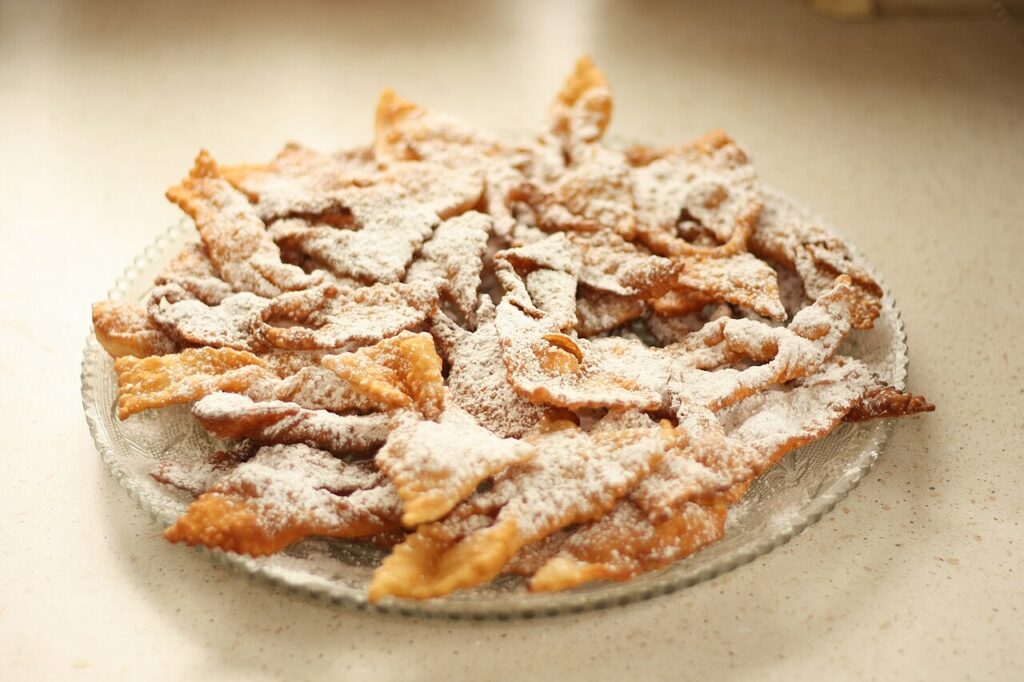Fat Thursday, known in Poland as Tłusty Czwartek, is one of the most beloved and indulgent traditions in Polish culture. It marks the last Thursday before Lent, a time when people across the country set aside their diets and enjoy an abundance of sweet, deep-fried pastries. Unlike Mardi Gras or Shrove Tuesday, which are widely celebrated in the West, Poles dedicate this special Thursday to feasting, particularly on pączki—traditional Polish doughnuts that have become the undisputed stars of the day.
Pączki are round, golden-brown pastries made from rich dough containing eggs, butter, and often a small amount of alcohol, which prevents excessive oil absorption during frying. They are typically filled with rose jam, custard, chocolate, or other sweet fillings, then glazed with icing or dusted with powdered sugar. According to tradition, eating pączki on Fat Thursday is believed to bring good luck, and a popular Polish superstition claims that failing to eat at least one pączek on this day may lead to misfortune for the rest of the year.

While pączki dominate the celebration, they are not the only treat enjoyed on Fat Thursday. Another popular pastry is faworki, also known as „angel wings” or „chrust.” These delicate, crispy pastries are made from thinly rolled dough, deep-fried to a light golden color, and generously dusted with powdered sugar. Their airy texture and slightly sweet taste make them a favorite alongside pączki. In some regions of Poland, other deep-fried sweets, such as racuchy (apple fritters) and opleśniki (sweet pancakes), also appear on the table.
The origins of Fat Thursday date back to the Middle Ages, when it was initially celebrated as a feast marking the end of winter. In the past, the holiday featured not only sweet pastries but also hearty, savory dishes such as pork, lard, and bacon. Over time, the focus shifted to sweets, particularly pączki, which became an essential part of the celebration. Historically, Polish aristocrats and nobles would throw extravagant Fat Thursday feasts, while the general population also took part by baking their own pączki at home. Today, the holiday remains one of the most anticipated culinary traditions in Poland.
Modern-day Fat Thursday has become a nationwide obsession, with bakeries working around the clock to meet the overwhelming demand. It is estimated that Poles consume over 100 million pączki on this day alone. Long lines form outside bakeries from the early morning, as people eagerly wait to purchase the freshest and most delicious pączki. In offices, schools, and homes, boxes of these doughnuts are shared among colleagues, friends, and family members, making it a day of indulgence and social bonding. Even international fast-food chains and supermarkets join in, offering their own versions of pączki, though many Poles insist that the best ones come from traditional bakeries or homemade recipes passed down through generations.
Although Fat Thursday is primarily a Polish tradition, it has gained popularity in other countries with Polish communities. In the United States, cities with large Polish populations, such as Chicago, Detroit, and New York, see Polish bakeries selling thousands of pączki to eager customers. In Germany, the day is known as Weiberfastnacht and marks the beginning of the Carnival season, during which doughnuts (called Berliner) are also enjoyed. In other Slavic countries, variations of the holiday exist, with similar deep-fried pastries playing a central role in the pre-Lenten feasting traditions.
Fat Thursday is more than just a day of indulgence—it is a cultural celebration that brings together families, friends, and entire communities. Whether enjoying a pączek with a cup of coffee, baking homemade treats, or sharing sweets with loved ones, the holiday serves as a reminder of the simple joys of life. So, if you ever find yourself in Poland on Fat Thursday, don’t resist the temptation—grab a pączek (or several) and take part in one of the sweetest traditions in Polish culture. Smacznego!






